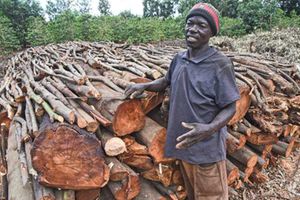Sugar firms feud over cane poaching
What you need to know:
The millers, however, agreed that poaching has reached crisis levels and that if it goes unchecked, many millers will close down.
- They said the absence of a legal framework, inactivity by the regulator, delays in harvesting and payment are to blame for the rampant cane poaching.
Owners of two sugar mills on Tuesday accused each other of cane poaching before a National Assembly committee.
West Kenya Sugar boss Jaswant Rai and his counterpart Sanjay Patel of Butali testified before the National Assembly Committee on Implementation separately.
Mr Rai told the MPs that he was being fought by other millers because his company has been doing well and that his rivals are determined to bring him down due to what he termed as business jealousy.
WILD ALLEGATIONS
"I am a victim of jealousy because I pay farmers for within seven days while other millers take months or even years to pay them,” Mr Rai told the committee, adding he was committed to the farmer.
He denied West Sugar Company’s claims that he used illegal means to obtain his licence.
“What you are being told is just wild allegations. When I share with you the details, you will realise that what is being alleged is not true. We were licensed in 1981 and so far we are the only millers paying farmers promptly for delivered cane,” Mr Rai said.
IMMATURE CANE
Appearing before the same committee, Mr Patel said cane poaching has been sustained for a long time by the failure by the regulator to enforce regulations under the Crops Act leading to lawlessness.
“Presently, as hurtful as cane poaching is, absence of regulation has resulted in the establishment of weighing bridges everywhere and poaching is being undertaken with abandon, even of immature sugarcane,” Mr Patel said.
He said there is need for new laws and regulations to establish sugarcane catchment areas, which can stipulate from where millers can source their cane.
CRISIS LEVELS
“To address the issue, we recommend that laws and regulations be enacted to make it strictly a prerequisite before issuing an annual milling licence, [that] a miller shows evidence of own cane development programmes commensurate with their tonnes crushed daily capacity,” Mr Patel said.
However, the antagonists agreed that poaching has reached crisis levels and that if it goes unchecked, many millers will close down and subject thousands of workers to poverty and despair.
They said the absence of a legal framework, inactivity by the regulator, delays in harvesting and payment and failure to undertake cane development are to blame for the rampant cane poaching.





